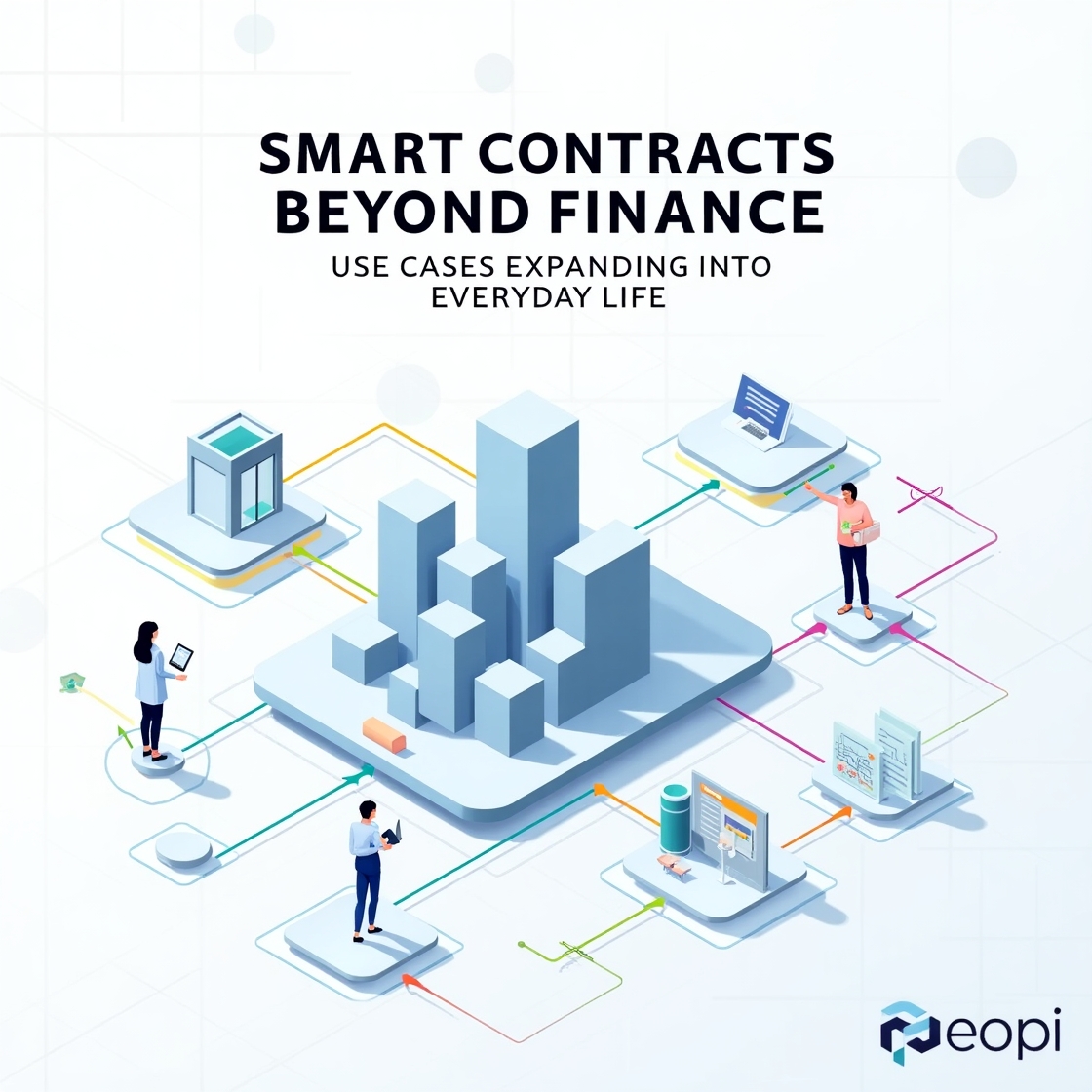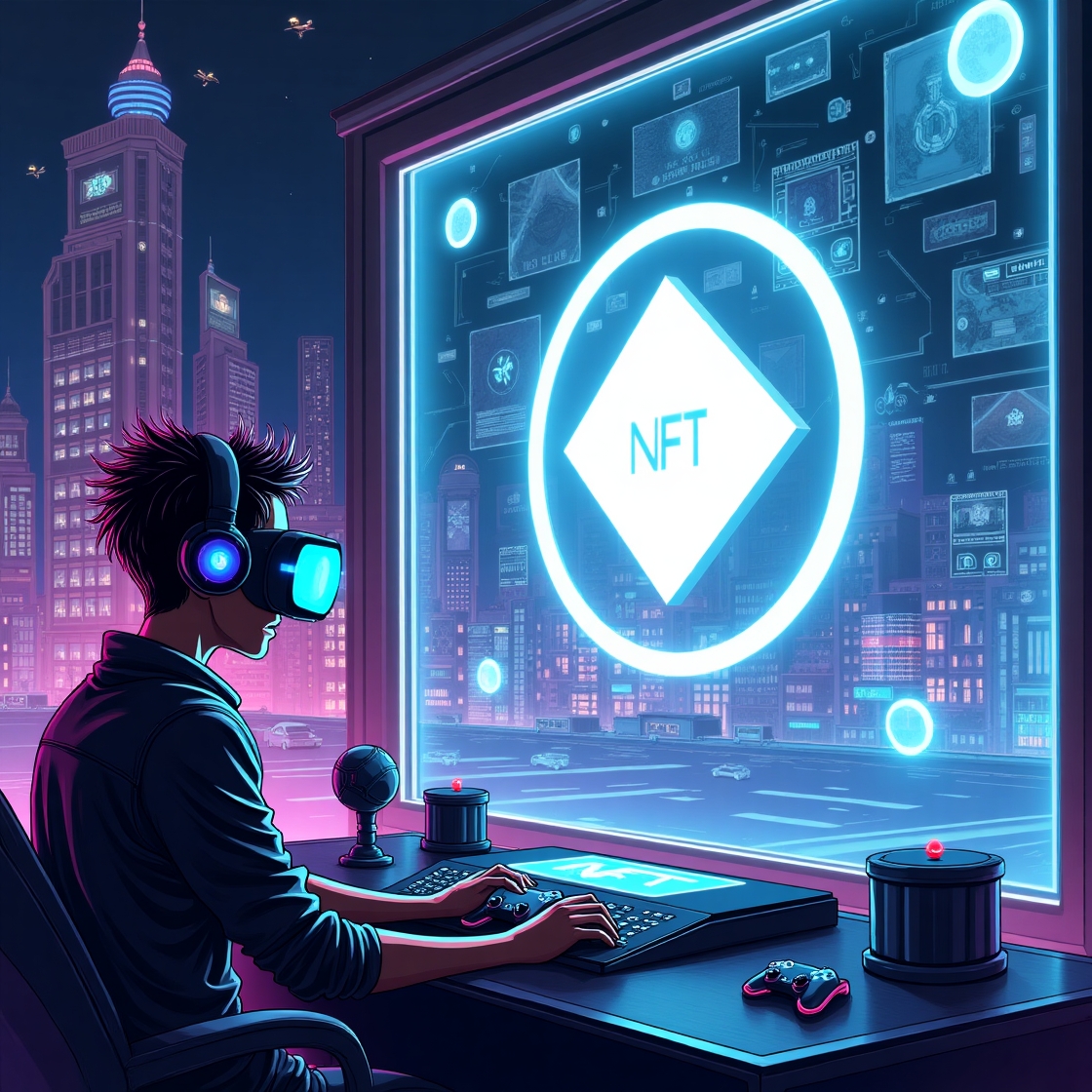Smart Contracts Beyond Finance: Use Cases Expanding Into Everyday Life
When Ethereum introduced smart contracts in 2015, it sparked a revolution in decentralized finance (DeFi)—automating lending, trading, and yield farming through code. But nearly a decade later, in 2025, smart contracts are breaking out of their financial box and stepping into the real world.
From real estate to gaming, healthcare to supply chains, and even entertainment and law, smart contracts are starting to reshape everyday life by bringing transparency, efficiency, and automation to processes that were once slow, costly, and trust-dependent.
So, what exactly are smart contracts, and how are they going mainstream?
What Are Smart Contracts (Really)?
Smart contracts are self-executing pieces of code stored on a blockchain that automatically perform actions when predefined conditions are met.
They eliminate the need for intermediaries (like banks, lawyers, or brokers), and instead rely on decentralized logic: “If X happens, then do Y.” Once deployed, they’re immutable, tamper-proof, and fully transparent.
Think of them as digital vending machines: insert the correct input, and you get the correct output—without needing to trust the machine owner.
Beyond Finance: Everyday Applications of Smart Contracts
1. Real Estate and Property Transfers
Buying or renting property has always been a complex process, often involving lawyers, escrow services, notaries, and loads of paperwork. Smart contracts can simplify this by automating escrow and title transfers.
- Tokenized real estate platforms are already using smart contracts to enable fractional ownership and direct peer-to-peer transactions.
- Rental agreements can be encoded on-chain, where tenants pay in crypto and receive access (like digital keys) automatically upon payment confirmation.
This means faster closings, reduced fees, and more transparent property records.
2. Supply Chain Transparency
Smart contracts are revolutionizing global supply chains by enabling end-to-end traceability.
- Every step—from manufacturing to distribution—is logged immutably.
- Payments can be triggered automatically when goods reach certain checkpoints.
- If a supplier misses a deadline or the temperature of a shipment exceeds limits, smart contracts can halt further payments or flag the issue instantly.
This kind of programmable logistics improves accountability, reduces fraud, and ensures better compliance in industries like food, pharmaceuticals, and luxury goods.
3. Healthcare and Medical Data
Healthcare has been historically bogged down by inefficiencies and trust issues. Smart contracts are addressing this by:
- Managing consent for data sharing, where patients can grant or revoke access to their medical records using programmable permissions.
- Automating insurance claim processing, where payments are executed only if conditions (e.g., treatment approval, procedure verification) are met.
This reduces errors, speeds up treatment approvals, and restores data control to patients, not providers.
4. Digital Identity and Access Management
In the Web3 world, identity is becoming self-sovereign, and smart contracts are playing a key role.
- Users can store verified credentials on-chain (education degrees, certifications, licenses).
- Smart contracts can grant access to services or platforms only if credentials are valid, eliminating the need for centralized gatekeepers.
This is already being used in DAO memberships, gated content platforms, and even online exams or job applications—where your on-chain resume speaks for itself.
5. Entertainment and Creator Economy
Artists, musicians, and content creators are using smart contracts to automate royalties, split payments among collaborators, and sell digital collectibles (NFTs) with programmable utility.
For example:
- A musician releases a song as an NFT.
- The smart contract ensures every stream or resale pays 10% to the original artist.
- No label, no middleman—just code enforcing value flow.
This is creating new business models where creators retain more ownership and fans can directly support and benefit from artists’ success.
6. Legal Agreements and Dispute Resolution
“Code is law” is becoming less theoretical. Smart contracts are now being used in:
- Freelance platforms where milestones, payments, and deadlines are encoded in advance, reducing disputes.
- Arbitration dApps like Kleros, which use smart contracts to escrow funds and assign jurors in decentralized courts.
While they won’t fully replace human lawyers anytime soon, smart contracts are certainly reducing the friction and cost of enforcing contracts for simple, programmable agreements.
7. Gaming and Metaverse Economies
In blockchain-based games, smart contracts are used to:
- Mint and trade in-game items and characters as NFTs.
- Automate game logic and rewards.
- Manage DAOs where players vote on the development roadmap.
Games like Illuvium, The Sandbox, and Decentraland use smart contracts to blend gameplay with real economics—where players not only play, but own and govern.
Challenges to Widespread Adoption
While the potential is huge, smart contracts still face real-world hurdles:
- Legal recognition: Most governments don’t yet recognize smart contracts as legally binding in all cases.
- Security risks: Bugs or vulnerabilities in smart contract code can’t be easily reversed—and have led to millions in losses.
- Scalability: High fees and congestion on some chains can limit usability for small or fast-moving transactions.
- User experience: Interacting with smart contracts often requires a crypto wallet and knowledge of gas fees, which can alienate non-technical users.
The Future: Smart Contracts as Invisible Infrastructure
The most successful smart contracts won’t feel like “smart contracts” at all—they’ll be seamless, invisible layers powering everyday apps and services. Users won’t need to understand the underlying code; they’ll just enjoy the benefits of automation, trustlessness, and efficiency.
In 2025, more startups and enterprises are integrating smart contracts not as a gimmick, but as core infrastructure. As tools like Chainlink, The Graph, and Zero-Knowledge Proofs mature, smart contracts will gain access to richer data and privacy-preserving capabilities—unlocking even more mainstream use cases.
Final Thoughts
Smart contracts are no longer confined to trading platforms or crypto lending protocols. They’re stepping into the real world—reshaping industries, redefining trust, and transforming the way we interact with services, data, and each other.
As adoption accelerates and the tech becomes more user-friendly, the question isn’t whether smart contracts will go mainstream—but how many aspects of daily life they’ll eventually touch.




Post Comment